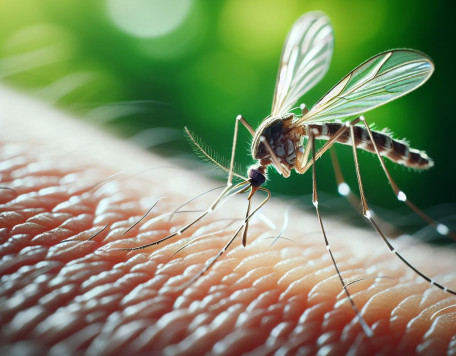© Pint of Science, 2025. All rights reserved.
Humans need a bit of help to stay safe and well in the world. Tonight's speakers will be discussing how phages are a new innovation in the fight against antibiotic resistance and how we can build organs in the laboratory to study them and test new drugs.
Calling all phage fans…The viruses that are the alternative to antibiotics!
We are facing post antibiotic era, we could die from an infected papercut.
Enter Phage: WE EAT BACTERIA FOR BREAKFAST!
These phages are found everywhere including in sewage! Scientists are growing phages to kill the hardest to kill bacteria. Find out how we go from sewage to a phage cocktail and just how these tiny viruses could save lives!
I am a phage fan girl! I’ve researched phage for years, and finally the UK government are backing production of phages. I am thrilled I’m involved in the manufacturing process at CPI in Darlington! Discover the new drug that contains live viruses that could be used instead of antibiotics very soon!
Enter Phage: WE EAT BACTERIA FOR BREAKFAST!
These phages are found everywhere including in sewage! Scientists are growing phages to kill the hardest to kill bacteria. Find out how we go from sewage to a phage cocktail and just how these tiny viruses could save lives!
I am a phage fan girl! I’ve researched phage for years, and finally the UK government are backing production of phages. I am thrilled I’m involved in the manufacturing process at CPI in Darlington! Discover the new drug that contains live viruses that could be used instead of antibiotics very soon!
How to build a mini organ in a dish
Organs are organised groups of cells in our bodies which perform specific functions to keep us alive, such as breathing in oxygen or digesting food. These are further split into separate groups of cells called tissues, each of which contributes to organ activity. The particular structure and organisation of cells within tissues directly impacts the overall functionality of the organ. It is therefore important to consider how particular tissues are organised, and how this can be replicated within an laboratory environment to make a representative model for further study. Studying organ function in the lab can be challenging as it’s difficult to keep them alive for extended time periods and while animals have been used, these aren’t really representative of human organ function. Advances in biotechnology mean that scientists can now build accurate miniature versions of many organs in the laboratory using human cells, providing a much more relevant study system to investigate how organs function in health and disease. More importantly, these mini organs can be used to test new drugs before their use in animal studies and clinical trials. In this talk, I’ll be describing how we build mini organs in a dish, exploiting similarities between organs to use the same method for multiple organs and telling you more about my work researching lung fibrosis.
Whose Body and What Mind?: Social Robotics and the Future
This presentation introduces the idea of Social Robotics – the belief that humans can and do have emotional and social relationships with robots and asks what are the benefits and detriments of such use? As robots grow increasingly more humanlike with AI and advanced materials, are there limits to what we make and they do? Will they trust us and will we trust them? These and other questions will be discussed in a fun, interactive manner that will lead to both excitement and trepidation about our future with our robotic companions and each other.
Map data © OpenStreetMap contributors.
Other The Cartologist at The Garden House events
2025-05-19
Elemental Drama: From Fluorine to Pharma
The Cartologist at The Garden House
Framwellgate Peth, Durham, DH1 4NQ, United Kingdom
2025-05-20
Infection to Innovation: Science to the Rescue
The Cartologist at The Garden House
Framwellgate Peth, Durham, DH1 4NQ, United Kingdom



